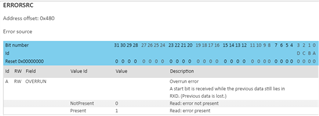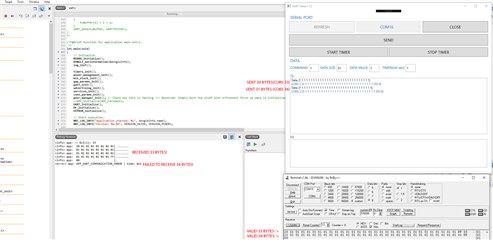Hi,
got a question about UART and maximum bytes it can receive in one burst or "packet".
Using nRF52382 and SDK16.
Recently I've been developing a new app in which UART baudrate needs to be 576000. Everything is set and Rx/Tx works. Legacy mode is turned off so only easy dma is enabled in the driver.
When nRF needs to receive more than 30 bytes problems occur and APP_UART_COMMUNICATION_ERROR with code 1 keeps turning up. I've enabled hardware control for test and nRF is able to receive exactly 80 bytes correctly. If I send 81 bytes, I loose the last byte, if I send 82 bytes I loose the last 2 bytes and so on. UART FIFO is set at 256 bytes for both Rx and Tx.
Is 80 bytes some theoretical limit or is it defined somewhere in the sdk? When hardware flow is enabled I don't get APP_UART_COMMUNICATION_ERRORs, but bytes are still missing. Anyone knows why?
And 2 bonus questions.
1.) Is libuarte really only option for faster UART and can it solve the problem above?
2.) Where to start if I wish to implement my own UART driver?
Thanks!




